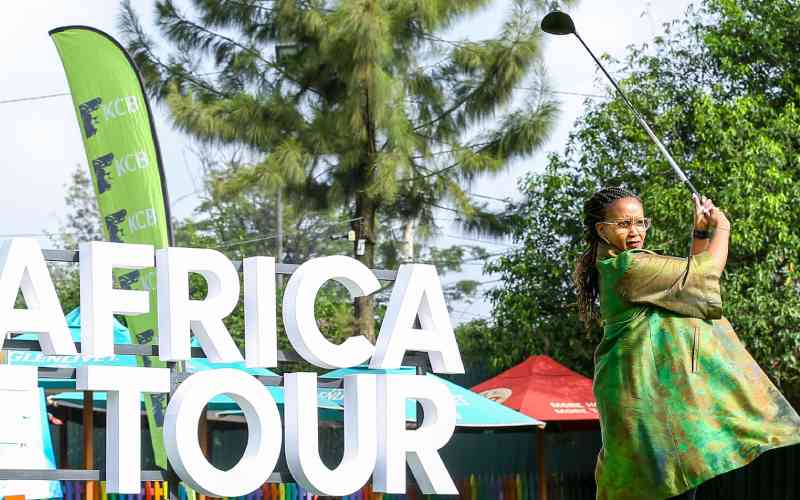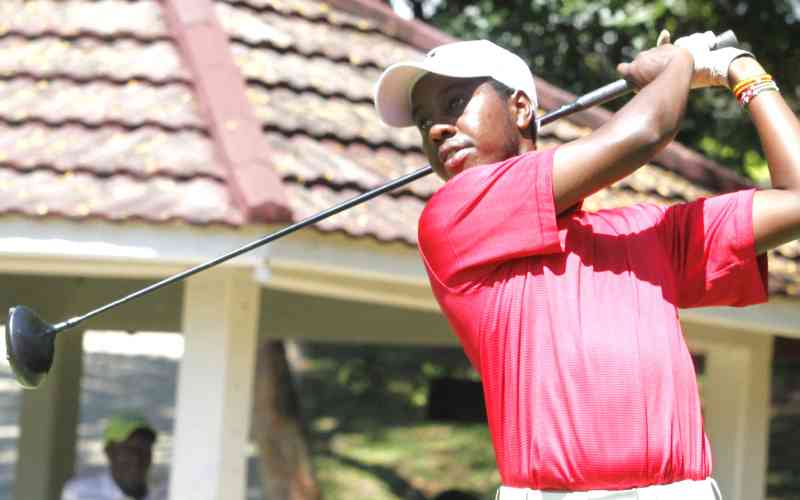 |
|
Kenyans at a social gathering in Britain. Many of them speak their mother tongues and Kiswahili at such events. PHOTO: COURTESY |
By SHAMLAL PURI
Kenya: Kiswahili and Kikuyu are on the list of languages spoken in multi-lingual Britain. Some 500 languages are spoken here, and Eastern Africans are contributing to the cultural and linguistic diversity.
More than 100 languages are spoken in London alone, and Kiswahili is one of them. Though 76 per cent of Londoners speak English, 22 per cent of the 1.7 million residents have another first language. Overall, there are 53 main languages spoken by migrants, including Gujarati, Urdu, Arabic and Kiswahili.
Kiswahili and Kikuyu are spoken mainly in the boroughs of Newham and Hillingdon in London.
Kiswahili has been in Britain for more than half a century. The BBC World Service launched its Kiswahili Service from Bush House in London on June 27, 1957, but this was largely beamed to the Eastern African region. African broadcasters spoke Kiswahili in the office or in social circles.
But times have changed. Kiswahili is not only spoken among Britain’s Kenyan diaspora, but also by people originally from Tanzania, Rwanda, Burundi, Somalia, Democratic Republic of Congo, Comoros and Oman.
It is not uncommon to see East Africans who have never spoken befriend each other simply because they have overheard one another speaking Kiswahili.
Briton James Penhaligon, author of the popular Speak Swahili Dammit!, grew up in East Africa, and is still smitten with the language.
“I learnt to speak Swahili before English, and spoke it with my African rafikis. There are hundreds of thousands of East Africans here. In places like Coventry and Leicester, for example, there are many shops belonging to former East African residents, where you can speak Swahili with nearly everyone,” James says.
Commercial vehicles plastered with messages in Kiswahili can be seen around London.
In a recent survey, 900,000 children in London were asked the first language spoken at home. While 609,500 said English, African languages — Swahili, Luganda, Somali, Lingala, Ga, Akan, Igbo, Yoruba, Tigrinya and Amharic —featured in the responses of 40,000 children.
CHURCHES
Kikuyu is also gaining importance in Britain. There is a growing need for translation services as an increasing number of Kikuyu elders turn to British courts, seeking redress and compensation over the mistreatment of the Mau Mau by the colonialists. London-based Absolute Translations has a team of Kikuyu translators in their books.
Oasis Academy in Croydon, south London, is one of the few that teach Kikuyu. It is one of the 69 languages spoken at the school with 1,400 students.
Councillor Elizabeth Kangethe, the Kenyan-born mayor of the London Borough of Barking and Dagenham, and a career teacher, underscores the importance of youngsters learning their mother tongue.
Stay informed. Subscribe to our newsletter
“I encourage speaking in mother tongue at home, as it has been proven that children who can speak a second or third language perform better in school,” she says.
Some churches in east London even conduct services in Kikuyu.
“At home and in social gatherings, most families use their vernacular Kikuyu, Luo and Kiswahili. It’s very important not to forget our culture because it defines who we are,” says Elizabeth.
“My son has been in UK for more than ten years, but still speaks Kikuyu and Kiswahili fluently. It is unfortunate when children lose their vernacular and are unable to communicate with their ageing grandparents.”
However, it is not London but Manchester that is the UK’s language capital. According to University of Manchester researchers, up to 200 languages, including Swahili, are spoken by the population of 480,000, making this one of the world’s most diverse linguistic cultures. The ethnic African population is growing rapidly.
Language skills, including Arabic, Kiswahili and Somali, are often in demand, attracting salaries of up to £35,000 (Sh5 million) annually.
Pascal Mbungira, 27, a refugee from the Democratic Republic of Congo, who distributes pizza leaflets around Deansgate, Manchester, speaks Kiswahili fluently, besides Kinyamulenge, French and English.
“I enjoy talking in Kiswahili to passers-by who have lived in East Africa. I meet my friends from Tanzania and Kenya over the weekends, and we enjoy chatting and drinking beer,” he says.
James Kiriamiti of Reading, Berkshire, is in no doubt that Kenyans are helping to build the presence of Kiswahili and Kikuyu in his area. There are more than 2,000 Kenyans living in Reading, jokingly called ‘Kikuyu-land’.
“The languages spoken in Reading represent the diversity of the Kenyan diaspora. Kikuyu is spoken here, but there is also a large Kisii community,” says Kiriamiti.
“There are after-school clubs and other community clubs where youngsters meet to learn Kiswahili.”
Angaza Adventist Church in Reading conducts all its services in Kiswahili. It is mainly attended by Kenyans and Tanzanians.
There is also a good market for Kiswahili and Kikuyu literature in Britain, as elderly Kenyans look out for these.
Former Nairobi resident Joyce Bert Ng’ang’a feels there is a growing need for Kenyans to hold language classes for youngsters in her adopted city, Leeds.
“An increasing number of parents are now seeing the importance of teaching children their mother tongues, but there is a clash of cultures because our children will speak English outside, regardless of what they are taught at home.
“We don’t have such language-learning facilities in Leeds, but as our community grows, I am sure things will change and our languages will have a stronger influence among the diaspora.”
— [email protected]
 The Standard Group Plc is a
multi-media organization with investments in media platforms spanning newspaper
print operations, television, radio broadcasting, digital and online services. The
Standard Group is recognized as a leading multi-media house in Kenya with a key
influence in matters of national and international interest.
The Standard Group Plc is a
multi-media organization with investments in media platforms spanning newspaper
print operations, television, radio broadcasting, digital and online services. The
Standard Group is recognized as a leading multi-media house in Kenya with a key
influence in matters of national and international interest.
 The Standard Group Plc is a
multi-media organization with investments in media platforms spanning newspaper
print operations, television, radio broadcasting, digital and online services. The
Standard Group is recognized as a leading multi-media house in Kenya with a key
influence in matters of national and international interest.
The Standard Group Plc is a
multi-media organization with investments in media platforms spanning newspaper
print operations, television, radio broadcasting, digital and online services. The
Standard Group is recognized as a leading multi-media house in Kenya with a key
influence in matters of national and international interest.








